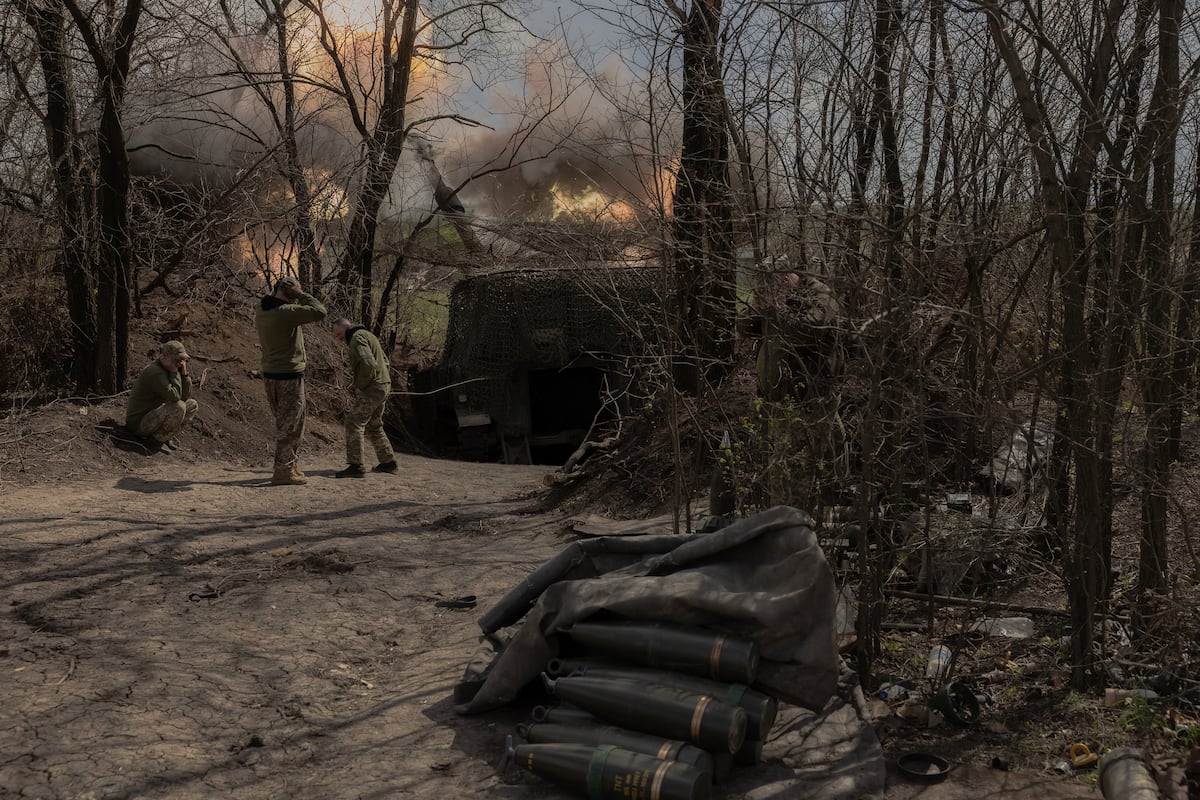WARSAW, Poland — Seeking higher domestic ammunition production capacities, the Estonian government has approved a project to build a plant that will make RDX-type explosives.
The investment is considered as key for the country’s plans to boost its 155mm artillery ammunition production capabilities, but also for exporting explosives to other countries facing shortages across the region, according to senior officials.
Estonia’s authorities have authorized the Ministry of Finance to set up a new company, Hexest AS, that is to be established in the coming weeks. The business will operate the designed RDX production facility, and it “will be handed over to the Ministry of Defence in up to six months,” the government said in a statement.
RDX is a highly energetic explosive chemical compound commonly used in military applications.
“There is a shortage of explosives production capacity in Europe, so building new capacity is essential to ensure security of supply for companies in Estonia and the wider region,” said Estonian Defence Minister Hanno Pevkur. “The explosives plant will make Estonia more attractive as a location for the defense industry.”
The state will initially own all the company’s shares, but Tallinn plans to involve a strategic investor for the plant in the future.
Meanwhile, the Estonian government is also readying to accommodate new ammunition plants. The cabinet is currently making efforts to settle domestic and foreign manufacturers of weapons, ammunition and equipment in different locations, among others at the defense industry park in Ämari.
“In addition to the ‘mini defense industry park’ in Ämari, we are also developing a national defense industry park, for which we also do not set limits on production, allowing the production of 155mm shells among other products,” a spokesperson for the Estonian Centre for Defence Investments (ECDI) told Defense News.
“It is up to defense companies to come up with production projects. The government will provide a conducive environment,” the spokesperson said.
Under the plan, the ECDI will host public tenders to select investors this year.
“The establishment of an explosives plant in Estonia will be a strong added value for the Defence Industrial Park and the ammunition producers that will be operating there,” said Pevkur.
Production activities at the RDX factory in Ämari are expected to begin in 2028.
As part of the project, an initial contribution of up to €7.2 million ($8.2 million) will “cover the costs of the technical design and preparatory activities. The technical design will take about a year to complete and the final investment decision will be based on its results,” the government statement said.
Earlier this year, the Estonian military received the first batch of Caesar 155mm self-propelled howitzers it ordered from KNDS.
Tallinn purchased 12 units in June 2024, with an option to order a further six. The howitzers will be part of Estonia’s newly established 3rd self-propelled artillery battalion operating under the command of the Estonian Division, the main combat unit of the country’s land forces.
In the aftermath of Russia’s invasion of Ukraine, a number of Eastern European allies have intensified efforts to develop their domestic ammunition production capacities, often seeking partnerships with major foreign groups.
In Lithuania, Rheinmetall is advancing a project to build a plant where it will make 155mm artillery ammunition. The plant in Baisogala is to launch operations in mid-2026. As part of the investment worth around €180 million, some 150 jobs are to be created locally.
Giedrimas Jeglinskas, the chairman of the Lithuanian parliament’s Committee on National Security and Defence, told Defense News that Vilnius aims to attract more defense industry players, and is determined to support potential investors with various types of assistance, including financial aid.
In Poland, the country’s authorities have allocated around 3 billion zloty ($798 million) to fund investments in expanding the nation’s ammunition production capacities, with a particular focus on 155mm artillery shells. The funds are to be provided to producers who will carry out projects in ramping up Poland-based ammunition manufacturing capacities.
Jaroslaw Adamowski is the Poland correspondent for Defense News.
Read the full article here








Leave a Reply